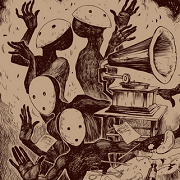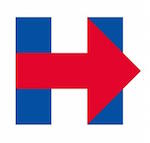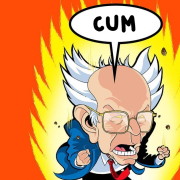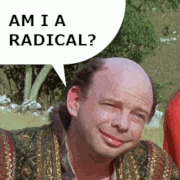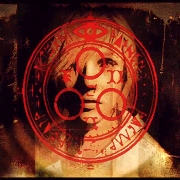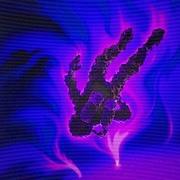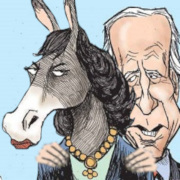(Thread IKs:
dead gay comedy forums)
|
Cleanse the asiatic race by not providing liquidity to banks offering home loans west of the Urals
|
|
|
|

|
| # ? May 24, 2024 14:14 |
|
quote:I'm reading a biography of Deng Xiaoping and I'm getting the sense that the Sino-Soviet split had its roots in Khrushchev: it seems like Mao and the Central Committee did not agree with the Secret Speech, the "anti-cult of personality" policy, and the denunciations of Stalin, and this was exacerbated by disagreements on how to handle the crises of the Polish October and the Hungarian uprising. This was later exacerbated by the Soviets adopting a policy of "peaceful coexistence" with the US, along with foreign policy disagreements regarding Taiwan and India. Cross-posting this here because I keep bouncing around topics in the Eurasia thread. Continuing with my reading, it seems like one can draw a direct line because Khrushchev's denunciations of the "cult of personality" and anti-Stalinism, and the Cultural Revolution. As far as I can tell, Mao saw what Khrushchev did to the USSR's politics, and became so concerned with the possibility of a "Chinese Khrushchev" lurking within the party's senior leadership that he came up with the idea of the Cultural Revolution in order to motivate the people to rise up and purge the capitalist roaders.
|
|
|
|
gradenko_2000 posted:Cross-posting this here because I keep bouncing around topics in the Eurasia thread. I've been listening to: https://soundcloud.com/thesocialistprogram/chinas-foreign-policy-complete-series-bonus-content-1949-today which is a six hour plus podcast about Chinese foreign policy. I got it from somewhere in CSPAM, so it might have been posted here already. What I get as China's key grievances: The USSR was genuinely concerned with not blowing up the world, but didn't bring China along to the negotiations with the US. With Korea, Tibet, and Taiwan, things were still pretty hot and close to home for the Chinese and they felt like they were getting sold out. In fact, when they signed the NPT, China was still a few years out from testing it's own bombs. China was pretty mad about Indonesia, while the USSR basically shrugged and went back to negotiate spheres of interest. At some point before the points above Khrushchev recalled Soviet advisors. The USSR didn't have their backs in the war with India.
|
|
|
|
ha, I posted the same thing in response to gradenko when he posted that in the Eurasia thread:crepeface posted:I just finished listening to a 6 hour podcast (7 parts) about China's foreign policy from 1949 to the present while assembling some furniture so obtuse and diabolical that I'm convinced that this is China's revenge strike for the century of humiliation.
|
|
|
|
crepeface posted:ha, I posted the same thing in response to gradenko when he posted that in the Eurasia thread: Hah, pretty sure I got it from that post. Just had the tab open with a vague memory that it's from CSPAM somewhere.
|
|
|
|
how is The Anti-Communist Impulse by Parenti? It has jumped the queue since I borrowed it from the library
|
|
|
|
The Khrushchev-Mao relationship was a really complex one. At first Khrushchev thought China was a huge opportunity for the USSR that Stalin had squandered by being too invested in Europe and too interested in testing Mao's loyalty (most notably with the Korean War), and he initiated what I think is still the largest ever peacetime aid program from one country to another. Massive amounts of Soviet capital, technical advisors, blueprints, etc., poured into China after Stalin's death. But these were all oriented towards the Soviet model of development, which was extracting an agricultural surplus from the peasantry and using it to fund urban industry facilitated by a strong central state, and they urged China to take it slow and not make any big deviations from that plan because that was what worked for them, it was the only proven model of socialist economic development in the world, and they wanted to avoid any big unexpected catastrophes. In China's First Five-Year Plan (1953-57), this worked like a charm. The Chinese economy advanced by leaps and bounds and saw dramatic industrialization and urbanization, much of it funded and directed by Soviet aid. But Mao wasn't really satisfied and in general saw the Soviet model as too bureaucratic, too comfortable, too centralized, too urban, and too slow. On the side, against the advice of the Soviet advisers and against the wishes of other CCP leaders but with the support of Chinese peasants, he made sure collectivization was included in the Plan and it worked better than Stalin's collectivization had in the 30s, which made him think maybe the Soviet advice wasn't all that after all. So at first under Khrushchev China and the USSR drew closer together, and Khrushchev--more than Stalin ever did--tried to accommodate Chinese interests and recognize them as a little more of an equal partner, by doing things like handing over joint ventures to Chinese ownership and control. But Mao was always suspicious of Khrushchev's motives and thought the Soviets might be taking advantage of China as an export market and source of raw materials rather than an equal partner. All the stuff about modeling their development on the USSR's own path kept rubbing him the wrong way too because his base of support was the peasantry, not the industrial proletariat. The Secret Speech and de-Stalinization made this worse, as did Khrushchev's shift to peaceful coexistence with the West, since Mao felt these could also be seen as veiled critiques of his own leadership in China and wanted a more confrontational attitude to the West in the name of anti-imperialism. The uprisings in Poland and Hungary then convinced Mao that de-Stalinization led to chaos, not to improvement. Based on the great advances of the First Five-Year Plan, Mao pushed for China to speed up industrialization even further, but the Soviets pushed back and again urged China not to get hasty and make any rash mistakes. That again rubbed Mao the wrong way and started to think that the Soviets were threatened by China's rise to predominance in the communist world, and were trying to hold China back so it would remain a junior partner rather than a real equal. So the Second Five-Year Plan (the Great Leap Forward) had wildly inflated goals, inspired by Mao's intentional deviation from the centralized bureaucratic Soviet development model which he now saw as holding China back, as well as by his desire for China to develop enough that it no longer needed Soviet aid. It didn't work, and its catastrophic failures angered Khrushchev even more since, to him, the Soviets had repeatedly warned the Chinese that some kind of disaster would happen if they moved too quickly, and they had been completely ignored. To Khrushchev this was just the Chinese stubbornly refusing to learn from Soviet leadership and experience, while to Mao that same thing was seen as the Soviets wanting to restrict the potential of an alternative model of socialist development and a potential rival for leadership of the communist world. To be reductive, the Soviets saw China as a junior partner that should follow their lead, and the Chinese saw the Soviets as imperialists trying to dictate the path of Chinese development. There were other events around this time that fed those sentiments, as well. China wanted the atomic bomb and the Soviets thought there was no need for them to have it since they were protected by the Soviet nuclear arsenal, another sign of junior partner status. The Soviets supported India (a Soviet ally) over China in the 1959 border war, another sign that the Soviets valued relations with non-communist countries more than relations with communist ones, and so on. Khrushchev withdrew Soviet advisers and a lot of Soviet aid in 1960, which exacerbated the failures of the Great Leap (joint projects went unfunded, Soviet machines that broke went unfixed, and so on), though iirc Khrushchev kept sending food aid to alleviate the famine. It took a few more years after that for the Sino-Soviet Split to really be official, but that was the biggest turning point. It can't really be reduced to any one driving factor, and imo placing all the blame on Khrushchev overlooks Mao's own failings as well. Like many things in history, it's overdetermined--you can find causes in foreign policy, domestic policy, ideological differences, personal differences, and so on. vyelkin has issued a correction as of 15:19 on Sep 9, 2021 |
|
|
|
vyelkin posted:and so on. *sniff* Thanks for that quick summary, ive been lurking this discussion and I think a lot of us aren't very familiar with the sino-soviet split
|
|
|
|
good post vyelkin but I'd say that reducing chinese foreign policy re the split to just Mao is a little reductive, unless you're using Mao as a shorthand for the chinese state as a whole. Deng and the post-Mao cpc continued the anti-USSR policy after all, despite repudiating a bunch of other aspects of late Mao-era policy like the GPCR
|
|
|
|
from the little I know of it, it definitely feels like kroosh was missing the tone and handling with China almost all the time, especially with regards on collaboration and partnership as equals in contrast, Fidel got him starstruck and got the USSR to do a lot for them what I am saying is that they should have talked to Fidel to intermediate this one out and the sino-soviet split would have never happened
|
|
|
|
i know you're probably joking but the relative positions of the ussr re china and cuba were determined by material forces, geopolitics and not the individual personalities of their leaders
|
|
|
|
mila kunis posted:good post vyelkin but I'd say that reducing chinese foreign policy re the split to just Mao is a little reductive, unless you're using Mao as a shorthand for the chinese state as a whole. Deng continued the anti-USSR policy after all, despite repudiating a bunch of other aspects of late Mao-era policy like the GPCR yeah that's partly shorthand, but it also reflects the fact that the CCP wasn't a unitary actor and that while Mao was the most important decision-maker, he didn't always get his way and what he wanted often clashed with what other party leaders wanted. I'm much less of an expert on the Chinese than the Soviet side, but my impression is that while much of the increasing split in the 50s was due to Mao's personal proclivities (in conflict with others, including at the time Deng, who favoured the Soviet development model), by the 60s and 70s Mao's position became the consensus position of the Chinese state and the rest of the leadership coalesced around the view that the Soviets were a greater imperialist threat than the Americans, in part because those who disagreed often didn't stay in positions of leadership. After Mao's death his successors were less worried about war with the Soviets, which preoccupied Mao (helping explain the ironic shift under Mao from breaking with the Soviets in part because of Khrushchev being insufficiently anti-American to working with the Americans for security against a perceived Soviet threat), but they realized the enormous potential benefits of trade and investment links with the US and other wealthy capitalist nations and so continued the pro-American and anti-Soviet foreign policy that the Mao-era PRC had arrived at for different reasons.
|
|
|
|
thanks for all the input, folks! I knew that if I posted enough about the Sino-Soviet split we could lure out others to weigh in on it call it my Hundred Flowers Posting
|
|
|
|
mila kunis posted:i know you're probably joking but the relative positions of the ussr re china and cuba were determined by material forces, geopolitics and not the individual personalities of their leaders yeah, I was doing a bit, sorry if it wasn't clear lmao
|
|
|
|
https://twitter.com/b1g_damage/status/1435731129705930755
|
|
|
|
gradenko_2000 posted:thanks for all the input, folks! I knew that if I posted enough about the Sino-Soviet split we could lure out others to weigh in on it Yeah, great success. vyelkin posted:
Thanks for that. The Great Leap Forward didn't make an appearance in the overview podcast and that's really important context. That makes the withdrawal of advisors a bit less abrupt.
|
|
|
|
Lenin and ML's in general have done more harm to the left than the right ever could. Larpers like the guy you quoted forget that the pre 1917 Social Democrats supporterd the Socialist Revolutionairy party (SR's) under Kerensky and their violent overthrow of the Tsar. Lenins Coup overthrew the first government in world history ever run by a democratic socialist. The first overthrow of a leftist ruler was done by a Tankie basically who successfully turned the first post-revolutionairy state into red fascism essentially. Lenin himself feared leftists more than he ever did the right because they threatened his rightist-charlatan ambitions and could call him out on his hypocrisy.
|
|
|
|
I hate anarchists.
|
|
|
|
mila kunis posted:Lenin himself feared leftists more than he ever did the right because they threatened his rightist-charlatan ambitions and could call him out on his hypocrisy. in this state company we only work with sourced quotes and receipts
|
|
|
|
mila kunis posted:Lenin and ML's in general have done more harm to the left than the right ever could. drat you hierarchy
|
|
|
|
mila kunis posted:Lenin and ML's in general have done more harm to the left than the right ever could.
|
|
|
|
mila kunis posted:Lenin and ML's in general have done more harm to the left than the right ever could. counterpoint: vladimir lenin is based
|
|
|
|
mila kunis posted:Lenin and ML's in general have done more harm to the left than the right ever could. go away
|
|
|
|
mila kunis posted:Lenin and ML's in general have done more harm to the left than the right ever could.
|
|
|
|
Anime Bernie Bro posted:counterpoint: vladimir lenin is based
|
|
|
|
Raskolnikov38 posted:go away you got got, it's a quote
|
|
|
|
Anime Bernie Bro posted:counterpoint: vladimir lenin is based
|
|
|
|
prolonging a mass imperial bloodletting, leftistly
|
|
|
|
Anime Bernie Bro posted:counterpoint: vladimir lenin is based
|
|
|
|
genericnick posted:Hah, pretty sure I got it from that post. Just had the tab open with a vague memory that it's from CSPAM somewhere. lol i think i got it from cspam too, can't remember where! thanks for this. the podcast lays out a similar rationale for the split. (but glosses over a few things that you covered)
|
|
|
|
calling lenin a tankie is probably the funniest thing ive seen in cspam in a while
|
|
|
|
Anime Bernie Bro posted:counterpoint: vladimir lenin is based
|
|
|
|
Goast posted:calling lenin a tankie is probably the funniest thing ive seen in cspam in a while some would even say he is the tankiest. the archtankie
|
|
|
|
dead gay comedy forums posted:the tankiest
|
|
|
|
Also most "communist countries" are just some flavour of capitalist or oligarchic systems with a red flag slapped on top. Especially China and the Soviet Union.
|
|
|
|
Goast posted:calling lenin a tankie is probably the funniest thing ive seen in cspam in a while the preeminent question on the left: would lenin have sent the red army into hungary?
|
|
|
|
something that always struck me as funny is that trots would condemn the ussr when they did socialism in one country and didn't use the red army for spreading communism into other countries, and then also condemn them for when they did exactly that.
|
|
|
|
dead gay comedy forums posted:some would even say he is the tankiest. the archtankie when he rolls into hungary he drives a kv-6 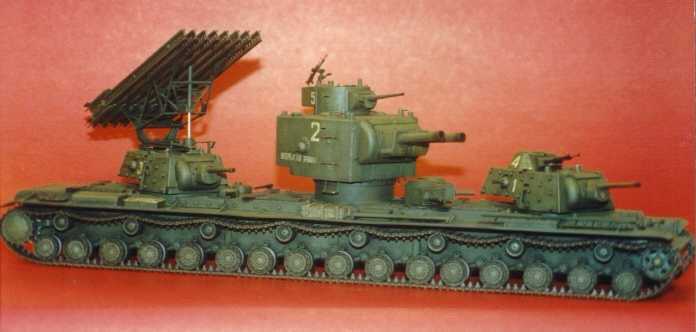
|
|
|
|
mila kunis posted:Lenin and ML's in general have done more harm to the left than the right ever could. gently caress off
|
|
|
|

|
| # ? May 24, 2024 14:14 |
|
are there any english language books about the soviet legal system?? or the PRC one, even about any era would be fine. i just realized i have no idea what an attempt at what 'socialist law' would really look like and want to attempt to fill that gap at least a little
|
|
|






